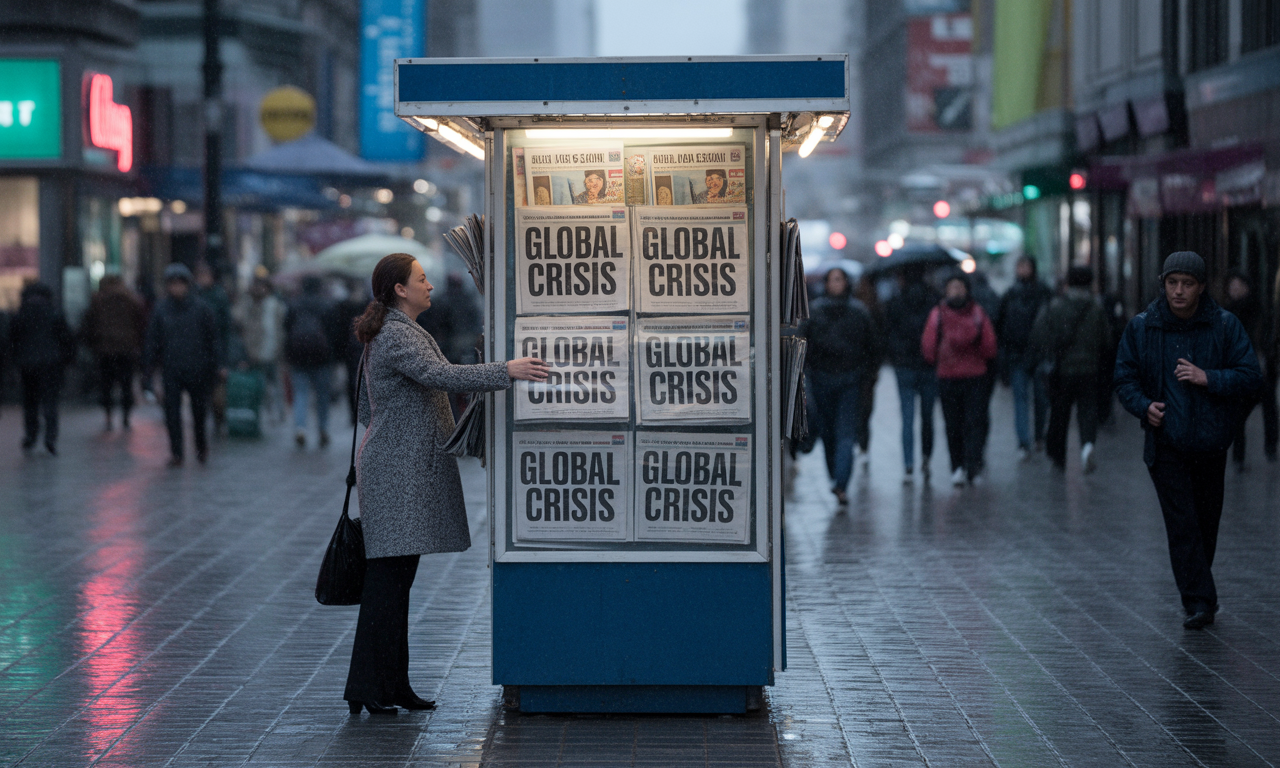Thought leadership in crises: authority that withstands scrutiny
Fri, 05 Sep 2025

Why a strong intellectual foundation provides stability when reputation is tested
In stable times, thought leadership is often associated with visibility: keynote talks, industry articles, LinkedIn posts. But when turbulence strikes – economic downturns, corporate crises, public controversies – surface-level influence crumbles. What endures is authority built on substance: strong ideas, deep expertise and a proven track record.
True thought leadership rests on a foundation that withstands scrutiny. When reputations are tested, those who invested in rigorous thinking emerge stronger, while shallow voices often fade.
In calm periods, branding or charisma may propel visibility, but under pressure audiences demand more – clarity, context and reasoned perspective. Without that intellectual core, even the most prominent leaders risk being discredited.
The power of a strong intellectual foundation
A durable thought leadership platform rests on three pillars:
- Depth of expertise: true experts do not just recite information; they interpret it, connect it to larger trends and offer actionable insights. Their authority grows from years of study and lived experience.
- Consistency of values: a clear, principled stance offers stability when storms hit. Leaders who shift positions for convenience often lose trust.
- Evidence of impact: concrete examples, past decisions and published work strengthen credibility. A portfolio of proven thought leadership acts as a shield against reputational doubts.
When these elements are in place, scrutiny does not dismantle reputation – it reinforces it.
Real-world examples of enduring thought leadership
- Warren Buffett during financial crises
Warren Buffett’s reputation as a thought leader in finance has endured multiple recessions. In 2008, when panic gripped markets, Buffett’s calm, principle-driven commentary reassured both investors and the public. His annual letters to shareholders, grounded in decades of consistent philosophy, became touchstones of wisdom. The strength of his intellectual foundation allowed him to cut through noise and emerge as a trusted voice, even while others faltered (Inc).
- Dr. Anthony Fauci during the COVID-19 pandemic
As the pandemic unfolded, Dr. Fauci faced intense scrutiny. What kept him relevant and authoritative was not flawless communication (he was often criticised) but his grounding in decades of epidemiological expertise and scientific rigor. Despite political crossfire, his ability to reference research, past outbreaks and medical precedent kept his credibility intact. Audiences may not have always agreed, but they respected the depth of his foundation (AMA).
- Indra Nooyi, Former CEO of PepsiCo
Nooyi’s thought leadership on corporate responsibility and sustainability has remained respected long after her tenure. During turbulent debates about corporate ethics, her credibility stems from years of publicly linking PepsiCo’s strategy to health, inclusivity and environmental goals. By consistently tying ideas to data and business outcomes, she built an intellectual authority that withstands shifting trends (Chief).
Lessons for executives and organisations
Whether you are a corporate executive or entrepreneur, the takeaway is clear: in turbulence, reputation depends on the quality of your intellectual foundation.
Here is how we guide our clients in building and sustaining it:
- Invest in depth, not just reach: publishing one viral LinkedIn post may bring visibility, but credibility grows from consistent production of meaningful content – articles, talks or reports that showcase real knowledge.
- Document your thinking: blogs, whitepapers or podcasts create a visible archive of your perspective. When crises emerge, people look back at your body of work. A clear track record makes it harder for detractors to dismiss you.
- Anchor to core values: in times of turbulence, opportunistic pivots can look like weakness. Leaders who reference their core values, whether innovation, ethics or community, appear grounded.
- Embrace transparency with substance: when under scrutiny, superficial reassurances fall flat. Transparent communication that acknowledges complexity while offering evidence earns respect.
- Balance visibility with restraint: not every storm requires immediate commentary. Strategic silence can preserve credibility if you lack relevant insight. True thought leaders speak when they have something substantive to add.
Why this matters now
We live in an era of turbulence – marked by economic uncertainty, rapid technological disruption, political polarization and social change. In such an environment, audiences are sceptical of empty rhetoric. They crave voices who can interpret chaos through a grounded lens.
A strong intellectual foundation doesn’t make leaders immune to criticism, but it ensures they can withstand it. Critiques may come, but when your arguments are backed by evidence, history and consistent effort, scrutiny becomes less of a threat and more of an opportunity to reinforce your authority.
As cases of Warren Buffett, Anthony Fauci and Indra Nooyi demonstrate, authority that withstands scrutiny is not built overnight, it is cultivated over years of disciplined thinking, consistent values and meaningful contributions.
For executives navigating today’s unpredictable world, the lesson is simple: do not chase influence, build substance. Influence may make you visible in calm waters, but substance is what keeps you afloat when the storm arrives. That is where GRA comes in – we turn substance into lasting strength, helping you weather crises and protect your reputation in all scenarios.
Connect with us today at [email protected].